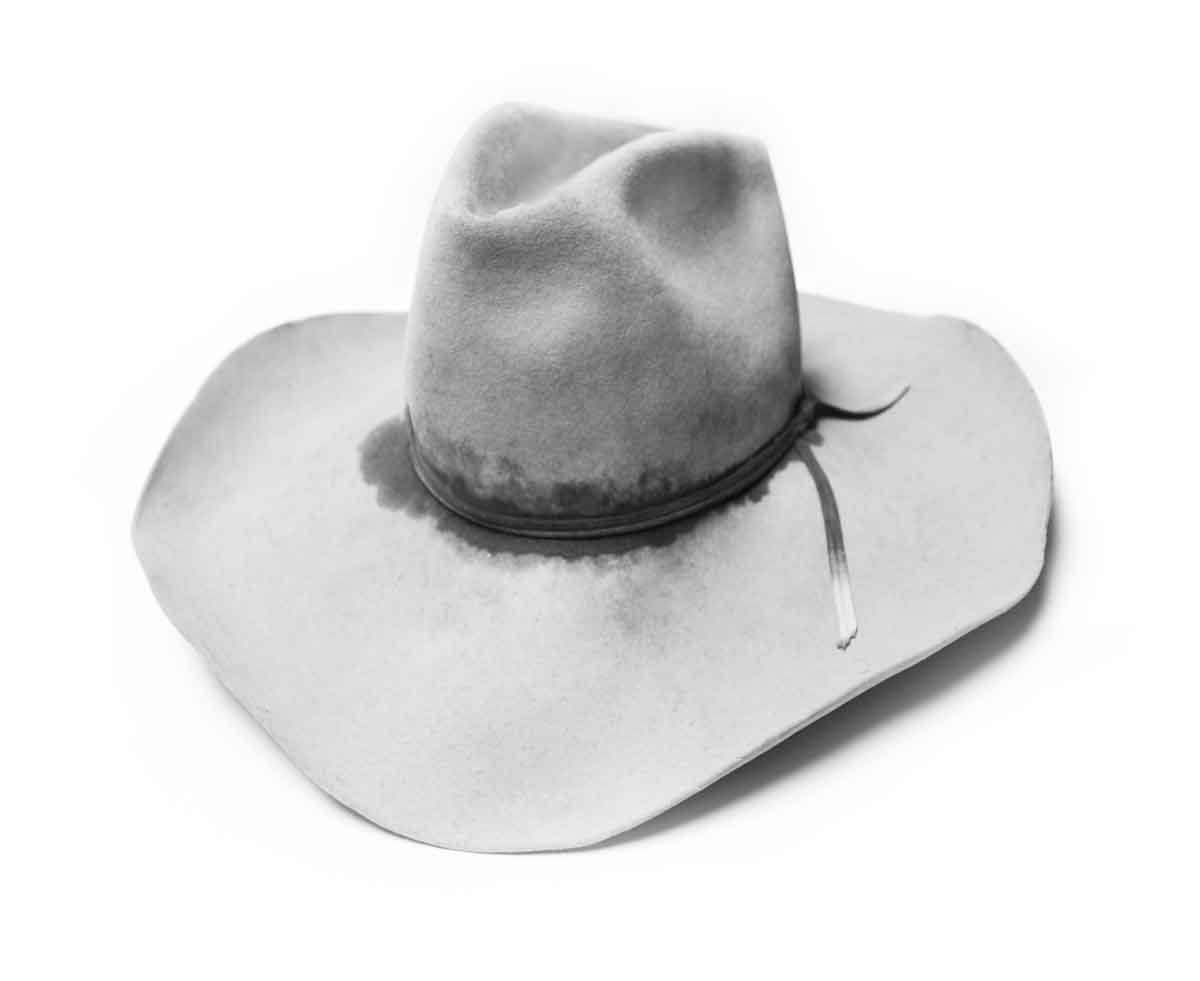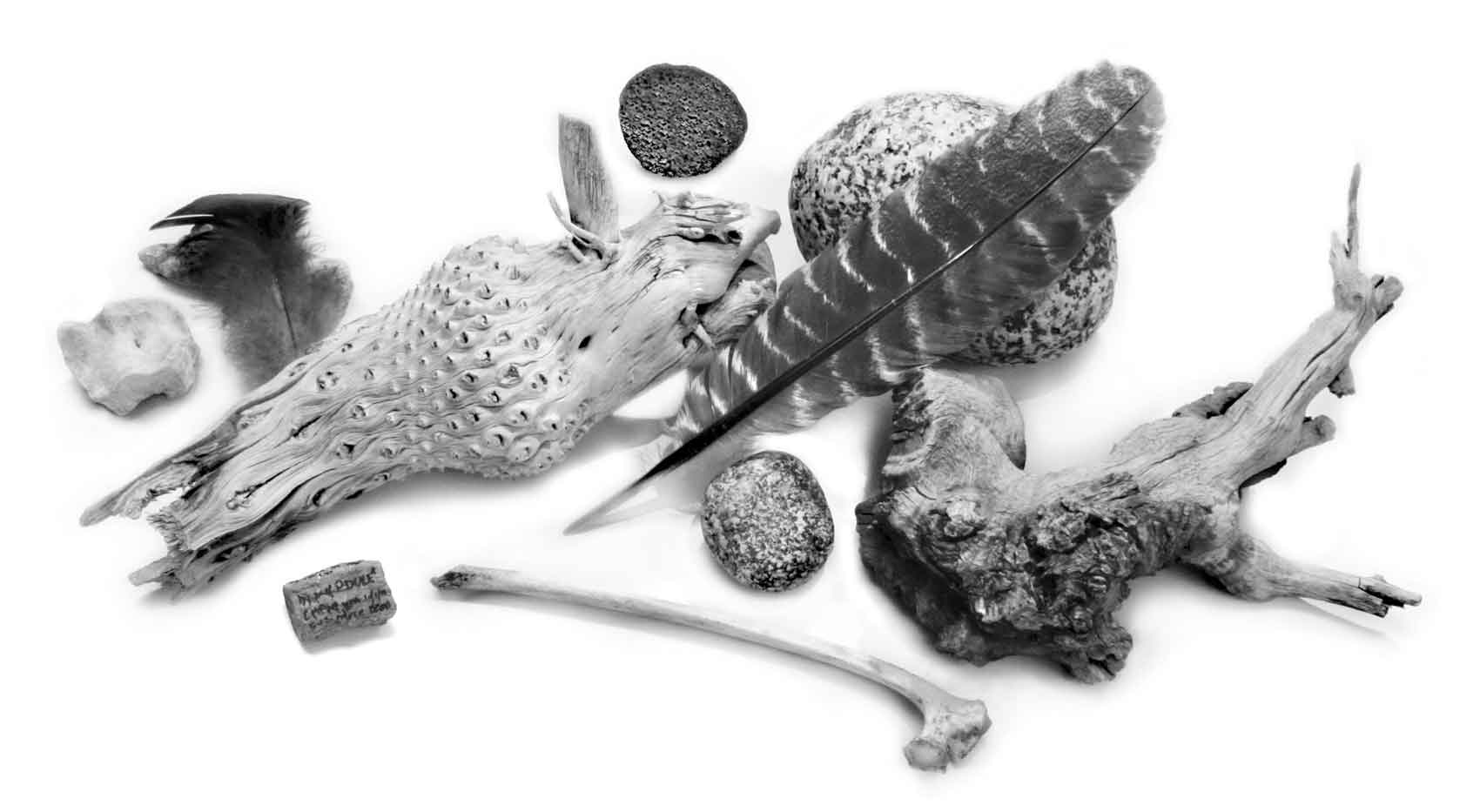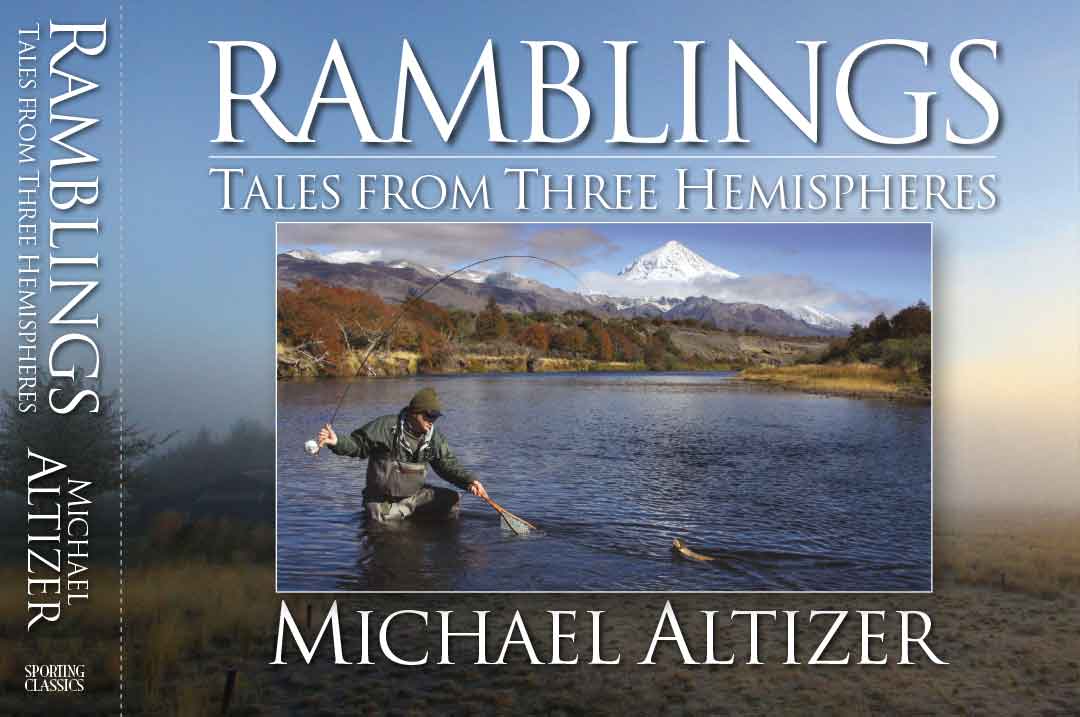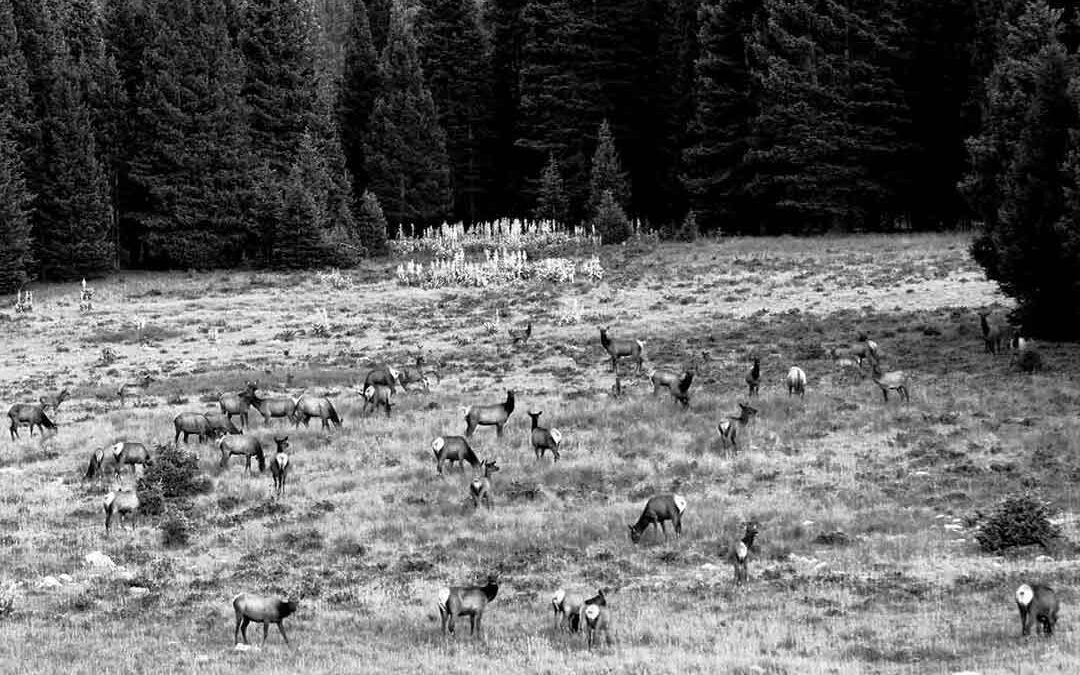Click here to order your copy today!
The Scent of Elk and Horses
by Michael Altizer
The whisper of water on weathering stone as it courses cold around your waders. The feel of streambed gravel beneath good felt soles.
The resonant patter of rain on the brim of a trusty old hat, and the sweet, pungent aroma of November wafting through the woods on a cool autumn eve. Your first springtime walk on hillside grass following a flat, frozen interlude in hospital and rehab, and the summertime taste of fresh-picked tomatoes on your otherwise wintering tongue.
A cottonwood storm in early June.
The scent of elk and horses.
Such is the essence of life—if that life is lived strictly in the moment with diligent disregard of future and past. And now it’s nearing Christmas once more, and it’s snowing. It’s snowing hard, and I’m on my way to the river with my fly rod for trout.
I love fishing for trout in snow, whether in Alaska or Patagonia or the Rockies, or here in the mountains of eastern Tennessee.
There will be only a couple of hours to fish this evening before darkness overtakes the river and me. But still I will fish, long after the night flurries end and the stars begin to gather. And the hours spent alone, safe and warm and self-contained in my waders and rain jacket and old felt hat, will be the best hours of the day, and for a while Time itself will cease to exist, leaving me calm and settled and serene to savor the moment at hand.
 I think this is, after all, why we fish and hunt, despite the trials and discomforts of weather, wind, and cold—times that are eagerly anticipated as we look forward to them, and highly treasured once they have been lived and loved and then consigned to memory.
I think this is, after all, why we fish and hunt, despite the trials and discomforts of weather, wind, and cold—times that are eagerly anticipated as we look forward to them, and highly treasured once they have been lived and loved and then consigned to memory.
But only when we are experiencing them in present tense do they actually exist for real.
Such experiences, once complete, are pleasant to remember and contemplate. They retain a value of their own, and writing about them brings a further sense of peace that ratifies their purpose and eases the everyday exigencies of life, causing us to continue seeking such episodes for as long as we are able.
But when the writing is finished, be it a note or a story or a book, there is always a latent lingering moment of uncertainty and emptiness.
Especially when finishing a book.
I must confess, every time I come close to the end of writing another book, I get a little scared.
Please understand, it takes years from the time a book begins taking form in your soul until it is complete. Some parts you write as you are living them, and some you write strictly from memory. Some you write purely from imagination. And sometimes you get perilously close to the end of the process before the book begins to reveal its true character and purpose.
Such has been the case with this book.
At first, it appeared that it was going to be a simple collection of stories and photographs and poems from a few distant and disparate locations. But the farther the book progressed, the more the realization grew that geographic diversity alone wasn’t nearly a good enough justification for its being—no matter how interesting and varied the geography might be.
So I was forced to delve deeper into both the past and the present in order to understand where these experiences had lead and what they had really been about.
I pulled shotguns and rifles and pistols and bows from various corners and closets and safes, rigged up my fly rods just as they’d been rigged when they fished the Holston and Watauga, the Brazos and Kanektok, the Chimehuin and Collón Curá and Rio Malleo.
From drawers and shelves and tables and bookcases I took stones and bones and bits of feather and wood in hand that I’d picked up from the top of the planet to the bottom, then held them and caressed them and let them remind me of where they had lain for years and centuries and millennia and eons before I arrived—until the appreciation hit me that, as a collection, these objects and these stories had become more about memory and meaning than travel and location, and the purely geographic hemispheres that originally had served as their settings were of far less importance than the sphere of remembrance and understanding that had grown from the experiences themselves.
For at its most meaningful, writing takes you back to the places and events that form the memories they spawn, while the things you thought and felt while you were living them draw you forward into a realm of consciousness and realization that transcends physical locale, and even Time itself.
They assume a life of their own and steer both the reader and the writer into areas of insight and emotion and spiritual appreciation that might otherwise never be explored, much less explained, and therefore give them, and us, a greater purpose.
But the closer you get to the end of the process, the closer you get to that sudden, now-familiar emptiness that only writing another book can fill.
And so it seems you’ll be working on this book or that until the day comes, as inevitably it will, when you’ll leave a book unfinished.
At least you hope you will.
A man’s heart strives to define his own way; but it is the Lord who directs his paths—it says so right there in the Owner’s Manual (Book of Proverbs, Chapter 16, Verse 9). And now I find those paths have led from the northernmost parts of my home hemisphere to the most distant reaches of the southern, mostly to places I first encountered through the stories of others. There is magic in those stories and in the impressions and images that flow from them, regardless of their origins.
But no matter the spheres from which they initially come, it is the memories and the stories that endure, long after the last shot has been fired, the last arrow has been released, the last cast has been made, the last trail has been trodden.
Or the last book has been written.
Such awareness does not originate from within oneself. Instead, it is a gift from another Realm, one that is completely separate from the mundane trappings of temporal accomplishment and ownership. For it seems the more you own, the greater the load.
So as the years wind down and you begin to divest yourself of more and more of the excess baggage and accompanying burdens of ownership, the less complicated and more meaningful life becomes.
In my younger years I was far too focused on the accumulation of numbers and things and experiences and achievements, along with the miscellaneous flotsam that often accrues in the life of someone born in the mid-twentieth century.
But as time wears on I have come to realize that I really don’t need any more new guns, for I find myself depending more and more on an ever decreasing number of rifles and pistols and shotguns I already know and trust. And whereas I took seven different fly rods and reels on my first trip to Alaska a few decades ago, I carried only three to Argentina last year. And one of those never saw action.
I find life to be much more manageable this way. The hunting becomes more meaningful than the hunt, the fishing more significant than the fish. Memories become more lasting than the experiences that spawned them, and I think if I were offered the opportunity to go back and live this life all over again, I would most likely decline.
For I have lived it once already—and in some cases even twice. And now I realize there is a Third dimension, a third sphere that waits beyond the mantle of Time and Mortality, one that promises clarity and meaning and is much more lasting and intriguing.
 And as for those stones and bones and bits of feather and wood?
And as for those stones and bones and bits of feather and wood?
I still know precisely where each of them came from and the reasons I picked them up.
I remember the scent of the air and whether it was raining or snowing or blowing a breeze or a gale. I remember each fish and bird and deer and elk and impulse that caused me to take these mementos in hand and embrace them and then slip them individually into my pack and pocket and memory, and how carefully I bore each of them home to assume their places with the other souvenirs of this life I have so graciously been lent.
But tonight I sense that my days of gathering such treasures are drawing inexorably to an end. And now all that’s left to do is to personally return them, one by one, to the mountains and plains, the deserts and dunes, and the forests and waters and hemispheres from whence they came.
The above is Michael Altizer’s introduction to his latest book “RAMBLINGS—Tales From Three Hemispheres.”

In addition to its over two dozen chapters that encompass stories from the top of the planet to the bottom, this book also contains a collection of nearly 200 stunning black-and-white and duotone photographs, from northern Alaska to southern Patagonia and various points between.
Click here to order your copy today!

